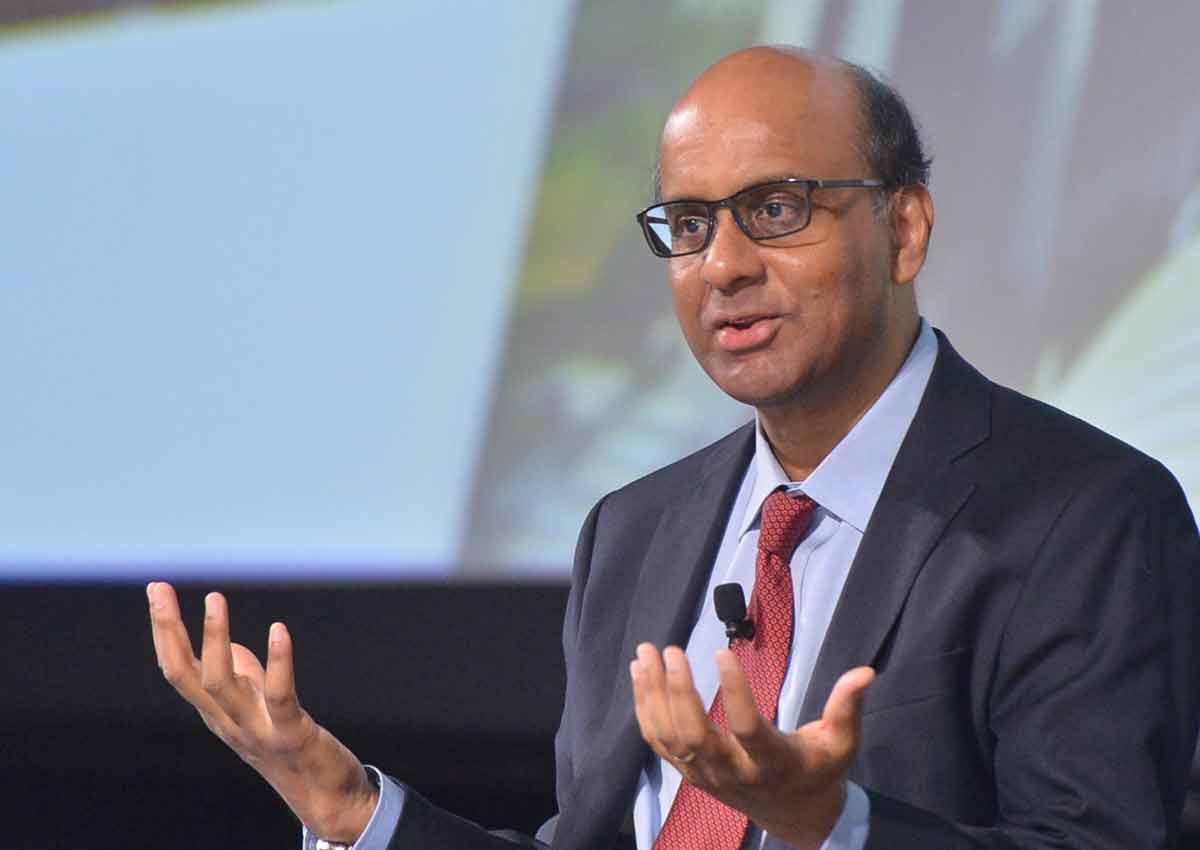SINGAPORE’S retirement age has to go “at some point”, said Deputy Prime Minister Tharman Shanmugaratnam at a dialogue at the World Cities Summit yesterday.
It is critical that older workers be seen as assets to be continually invested in, rather than just as add-ons needed because employers cannot find younger workers in a tight labour market, he added.
Mr Tharman, who is also Coordinating Minister for Economic and Social Policies, was speaking at the opening session of the World Cities Summit at Marina Bay Sands.
He outlined key challenges faced by growing cities, such as ageing societies, at the discussion about the move towards a “Liveable, Sustainable and Resilient Future”.
“Older folks are an asset. They have wisdom, experience and they also learn on the job… We don’t do it very well in Singapore so far and we have to do much better this time round,” said Mr Tharman.
His comments were a response to a question posed by Ambassador-at-large Tommy Koh, who moderated the dialogue between Mr Tharman and the audience of academics and policy-makers from across the globe.
Prof Koh asked Mr Tharman if the Singapore Government could abolish compulsory retirement.
“I am 78 years old, I am working full-time and I think many older Singaporeans are like me. They don’t dream of playing golf or lying on a beach. We want to continue to work and contribute to society,” said Prof Koh.
Mr Tharman said Singapore does not have compulsory retirement but has a retirement age, like many other societies.
“At some point, this (retirement age) has to go,” he added, because older people are assets and can keep learning and adapting as people’s brains continue to evolve even when they are in their 50s or 60s.
The retirement age in Singapore is 62, though the re-employment age will increase from 65 to 67 next year. Workers turning 62 can opt to retire or continue working until the re-employment age ceiling.
In Parliament earlier this year, East Coast GRC MP Jessica Tan asked why the Manpower Ministry did not remove the retirement age altogether.
Manpower Minister Lim Swee Say said this could actually be worse for workers as it means that companies can terminate their employees’ services earlier.
The other challenge that comes with an ageing population, said Mr Tharman, is healthcare, which has to be humane, affordable and convenient for people.
Currently, for instance, less than 20 per cent of the time that a person spends in going to the clinic or hospital is actually spent seeing the doctor, he noted. The rest of the time is spent on travel, queuing and waiting, and this is especially inconvenient for an older person with disability.
Telemedicine then, said Mr Tharman, is a huge opportunity for cities to tap on so that seniors at home have peace of mind.
In closing, he added that innovation is going to be a source of inclusivity. “It is not a contradiction to say that we want a highly innovative society, an open society as well as an inclusive society.”
jantai@sph.com.sg

Get MyPaper for more stories.






